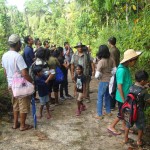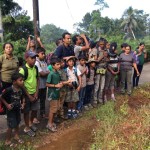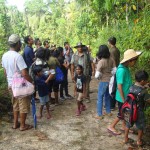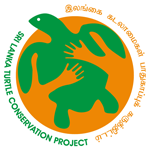
Workshops and Exhibitions
TCP’s education unit mostly refer to the important environmental policy documents such as the National Marine Turtle Action Plan, the Bio-diversity Conservation Action Plan (BCAP), and the National Environmental Action Plan (NEAP). Therefore, as a strategy to implement the key recommended activities related to public awareness, the TCP conducts many workshops and exhibitions in various places in Sri Lanka to increase awareness and improve the existing knowledge on coastal and marine habitats which are very important for sea turtles. These exhibitions and workshops are carried out with the hope of educating the school children, researchers, governmental agencies, NGOs and the general public. Some of the workshops are arranged by the TCP for important government and non-governmental organizations with actual or potential influence on marine conservation in Sri Lanka (e.g., Fisheries societies, Sri Lanka Tourist Board, Police stations, etc..).
The other purposes of holding exhibitions and workshops are,
- To encourage youth generation and get them involved in sea turtle conservation activities.
- To create an aesthetic value for sea turtles among the general public.
- To draw the attention of relevant government officials on marine & coastal issues which should be addressed immediately to conserve vanishing marine turtles and their habitats and also to increase the collaborative conservation efforts among the Government agencies, NGOs, independent researchers and community members such as turtle hatchery owners
- To summarize the Turtle Conservation Project (TCP)’s community-based conservation activities carried out in Sri Lanka between the period of 1993 and 2006.
The exhibitions mostly consist of detailed explanations of the different turtle species, work of the Turtle Conservation Project (TCP) and some instances the TCP invites government organizations to display information on marine habitats and educational videos including biological information and graphic sea turtle exploitation footage. Attendants of the exhibitions can purchase merchandise, collect free information on the work of the TCP and become members and volunteers.
School Lectures
Because of the increasing spread and intensity of the anthropogenic threats to coastal ecosystems and marine turtles in coastal areas, the TCP decided to conduct school lectures to increase the knowledge on marine turtle biology, natural and anthropogenic threats, conservation and management of marine turtles. This has been hoped to result in minimising the unstable use of marine resources and to prevent destructive utilization of coastal resources.
Lectures are conducted using visual aids to attract school children from the ages of 12-18 and school teachers. School children are specially selected because these children are likely to be the future stakeholders in coastal natural resources and as they are of an impressionable age, a greater sense of interest, moral duty and concern for their environment can be engendered.
Since 1993, TCP has conducted a series of marine turtle educational workshops for pupils and teachers in coastal schools between Kalpitiya and Kirinda, targeting in particular communities at fishing and marine turtle rookery sites. The aim was to generate awareness about marine turtles, their threats and conservation issues. During this programme TCP provided and distributed educational materials such as posters, booklets, leaflets and other essential materials. School turtle conservation groups have been formed resulting from the school’s workshops. In this way children in coastal areas are becoming actively involved in marine turtle conservation, education and research; while hopefully generating local community support for turtle conservation in these important fishing areas and where the greatest threats to marine turtles exist.



Film Shows
The environmental film show programme is one of the most popular educational and awareness programmes carried out by the TCP. The sole aim of conducting film shows is to attract many local people to pass the conservation message and to increase the knowledge and interest in the environment. Themes related to film shows are sea turtles, mangroves, coral reefs, general wildlife conservation, etc. The first environmental film show programme was launched in 2000 and continues as an important component in most of the educational programmes undertaken by the TCP.
Coastal communities, fisheries corporative societies, media personals, NGO members and other various stakeholders of the different localities are the target groups of these film shows and through film shows the TCP is able,
- To create enthusiasm for wildlife conservation among the coastal community members.
- Encourage coastal communities to feel local aesthetic values.
- To increase the attention of coastal communities on sea turtle conservation.
- To reduce the current threats to sea turtles such as beach lighting, beach littering, egg collection, slaughtering of sea turtles and habitat destruction etc.
TCP also conducts film shows in remote islands such as Battalangunduwa in Kalpitiya where local fishermen stay and are involved in fishing activities. These areas are well known for high levels of turtle by-catch. To facilitate the conducting of film shows in remote areas, TCP has a mobile film unit that can be transported to remote areas.

